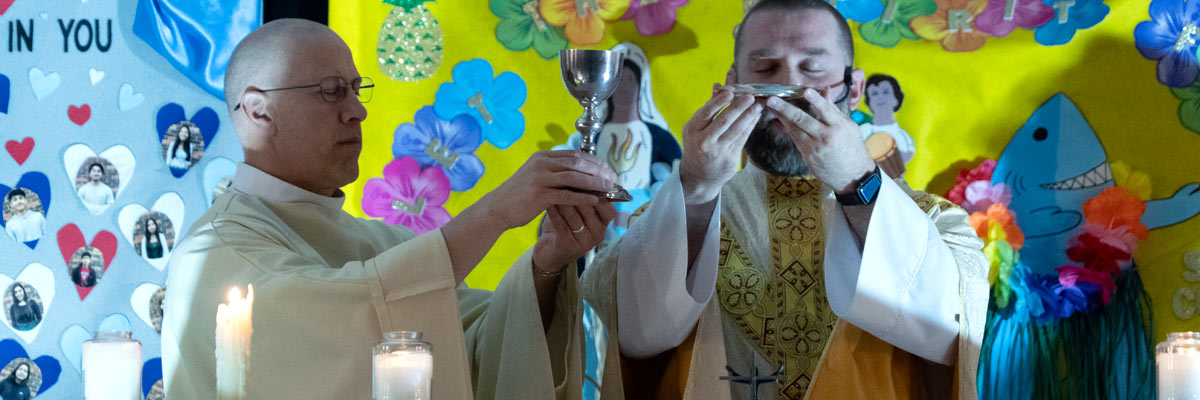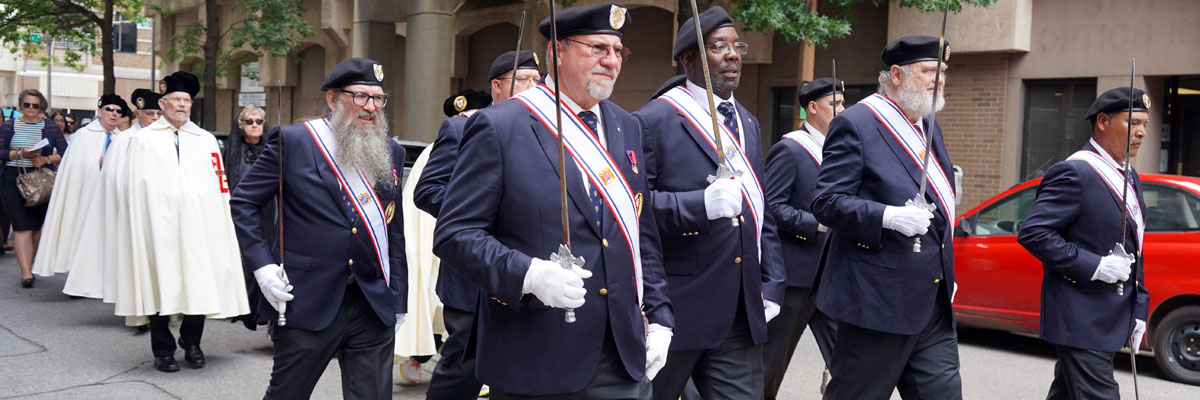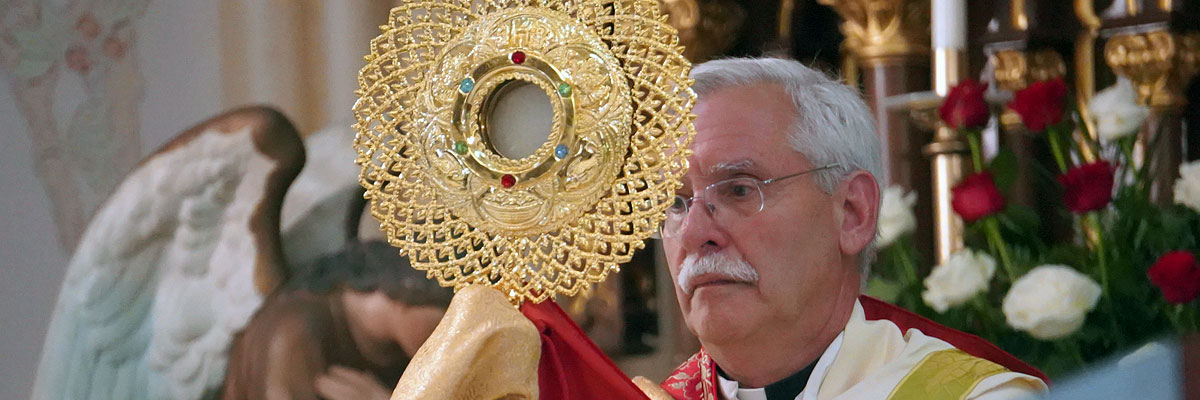Official Website of the
Catholic Diocese of Little Rock
Bishop comments on Eucharist document
Published: June 29, 2021
Bishop Anthony B. Taylor released the following statement, June 29, 2021, on the proposed teaching document of the U.S. Conference of Catholic Bishops’ Committee on Doctrine regarding the Eucharist and how he voted.
“I have received numerous requests from people who want to know how I voted on the question of whether to authorize the USCCB Committee on Doctrine to produce a teaching document on the meaning of the Eucharist in the life of the Church. The purpose of this document, which has not yet even been composed, is to serve as part of a larger plan of the USCCB to promote a eucharistic revival in our country now that Catholics are returning to regular Mass attendance as pandemic restrictions are lifted.
 “The proposed plan for the document is to present the material in three chapters: “The Eucharist, a Mystery to be Believed;” “The Eucharist, a Mystery to be Celebrated;” and “The Eucharist, a Mystery to be Lived.” Although the press and some bishops seemed to make the question of “eucharistic coherence” proposed for the third chapter the focus of their comments, especially when applied to people in public life (the implied — and sometimes, explicit — subtext being President Biden and others), that was not to be the main point of the proposed document.
“The proposed plan for the document is to present the material in three chapters: “The Eucharist, a Mystery to be Believed;” “The Eucharist, a Mystery to be Celebrated;” and “The Eucharist, a Mystery to be Lived.” Although the press and some bishops seemed to make the question of “eucharistic coherence” proposed for the third chapter the focus of their comments, especially when applied to people in public life (the implied — and sometimes, explicit — subtext being President Biden and others), that was not to be the main point of the proposed document.
“The main point is to address the decline in the belief among Catholics in the Real Presence of Christ in the Eucharist, body and blood, soul and divinity, especially where long absences from the Eucharist during the pandemic have led us to place less emphasis on the significance of the Eucharist in our daily lives, including people who have gotten used to the convenience of ‘attending’ their Sunday Mass on social media and foregoing actually receiving Communion sacramentally.
“I am glad that the voting was by secret ballot because otherwise people who disagreed with how I voted on this politically charged topic might read into that vote motives that were simply not the case, as would others who might actually agree with my vote but for all the wrong reasons. I listened to all 43 bishops who shared their views, especially about how to approach the question of eucharistic coherence, and I found myself agreeing with salient points made on both sides of the question.
"In any event, the proposal passed 168 to 55 with six abstentions. The plan is for the Doctrine Committee to get to work on the document in time for our November meeting, at which time modifications and amendments can be proposed, and then the resulting document put up for a definitive vote. For me, it will make a big difference what the document actually says.”
Sincerely in Christ,
+Anthony B. Taylor
Bishop of Little Rock








